Civil Liberties, Criminalizing Dissent, Human Rights, Surveillance, Torture, Truth to Power
Podcast: Play in new window | Download
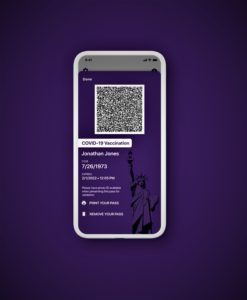

Vaccine Passports, Privacy And Civil Liberties
New York State became the first in the country to premier a Covid-19 vaccine passport. They call it the Excelsior Pass and proponents say it’s a safe and efficient way for people to return to sporting events, concerts, Broadway theaters and other large group settings. You show a QR code proving a recent negative test or full vaccination.
The pass is voluntary and lets New Yorkers upload their official results—from a number of different vaccination sites and labs—into the system to verify that the person holding the pass meets the standards for entry. The state first used the pass at a Buffalo Bills football game in January after which they monitored attendees for 14 days after and discovered “almost negligible” transmission.
Registration in the program requires three pieces of information: Name, date of birth, and zip code. The pass is matched to vaccination and testing records using a series of questions to prevent fraud. When the person arrives at a venue, all they have to do is show a photo ID with their code, which will generate a green check mark at the venue.
New York state officials say they’ve been in close talks with surrounding states about integrating systems, but their neighbors say it’s not the priority. What are vaccine passports and who is considering implementing them? Connecticut, for example says it doesn’t have immediate plans to roll out a vaccine passport, although Governor Ned Lamont has said it’s possible to see private sector solutions if demand grows and if the technology is proven effective.
Guest – Attorney David J. McGuire, executive director of the ACLU of Connecticut. McGuire also is the chair of the Connecticut Special Advisory Committee to the U.S. Commission on Civil Rights, serves on the state’s Racial Profiling Prohibition Project Advisory Board, and is a member of the Commission on Racial and Ethnic Disparities in the Criminal Justice System.
—-
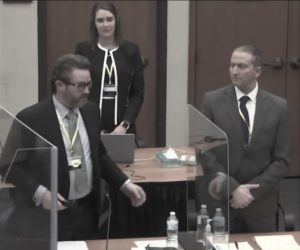
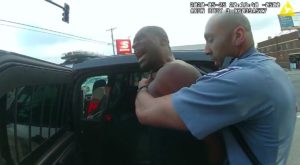
Attorney Flint Taylor : Police Brutality And The Derek Chauvin Trial
The cruel and sadistic police murder of George Floyd last June on a Minneapolis sidewalk was videoed by a courageous 17 year old bystander. Her video was viewed by Americans across the country and the world. It captured Minneapolis police officer Derek Chauvin, smirking, with one hand in his pocket as he knelt for 9 minutes and 29 seconds on George Floyd’s neck. Floyd was handcuffed behind his back and restrained by two other police officers at the time. He begged for his life, called for his mother, and repeatedly said “I can’t breathe!”
Onlookers gathered in protest as the murder progressed but their intersession was of no avail. George Floyd‘s life drained out of him. He lost his pulse. Still Chauvin persisted, kneeling on a dead man. An ambulance came to take away George Floyd’s corpse.
People responded, it was massive and sustained. In some two thousand cities across America 20 million people, white and Black , Black lead, protested in the streets. More than demanding that George Floyd’s killer be brought to justice, they demanded that police departments be defunded, that police be controlled by the community, and that ending police murders of Black people be brought to halt once and for all.
We are now in the midst of the trial of killer cop Derek Chauvin. Millions of Americans are watching the trial. It seems to them that this latest racist police outrage is the culmination of so many past murders. They are asking, what is to be done?
Guest – Attorney G. Flint Taylor is a founding partner of the People Law Office in Chicago starting out over 50 years ago representing the family of Black Panther leader Fred Hampton, Who was assassinated by the Chicago Police Department with the help of the FBI. He has represented numerous police torture survivors during the past 33 years. Taylor was one of the lawyers involved in the struggle for reparations and has chronicled the decade long fight against Chicago police torture in his award-winning book “The Torture Machine : Racism and Violence in Chicago.

—————————————–
CIA Sponsored Terror, Civil Liberties, Crony Capitalism, Habeas Corpus, Human Rights, Political Prisoner, Supreme Court, Surveillance, Truth to Power, War Resister
Podcast: Play in new window | Download
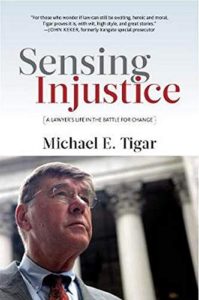

Sensing Injustice: A Lawyer’s Life And The Battle For Change
We are going to spend the entire hour with attorney Michael Tigar to discuss his just published magnificent memoir Sensing Injustice: A Lawyer’s Life And The Battle For Change.
By the time he was 26, Michael Tigar was a legend in legal circles well before he would take on some of the highest profile cases of his generation. In his first US Supreme Court case, at the age of 28, Tigar won a unanimous victory that freed thousands of Vietnam war resistors from prison. Tigar also led the legal team that secured a judgment against the Chilean Pinochet regime for the 1976 murders of dictator Pinochet opponent Orlando Letelier and his colleague Ronnie Moffit in a Washington, DC car bombing.
He then worked with the lawyers who prosecuted Pinochet for torture and genocide. A relentless fighter of injustice, Tigar has been counsel for Angela Davis, Jamil Abdullah Al-Amin (H.Rap Brown). Tigar the Chicago Eight, and leaders of the Black Panther Party, to name only a few. His book is about stories, people stories of injustice, struggle, and sometimes vindication as he put it. Michael Tigar is a magnificent storyteller with a dry wit and a prodigious memory. Monthly Review link to Sensing Injustice
Guest – Constitutional attorney Michael Tigar, professor emeritus from The Washington College of Law and has taught at the University of Texas and Duke University. He has practice before the Supreme Court, arguing his first case when he was 24 years old. Tigar has written or edited more than a dozen of important books including “Law and the Rise of Capitalism.“ He has worked for over 50 years with movements for social change as a human rights lawyer, law professor, and writer. Since 1996 he has practiced law with his wife Jane B. Tigar. Michael Tigar’s blog Tigarbytes.

———————————–
Civil Liberties, Human Rights, Political Prisoner, Prison Industry, Prosecution of the Bush Administration, Supreme Court, Surveillance, Targeting Muslims, Truth to Power, War Resister
Podcast: Play in new window | Download

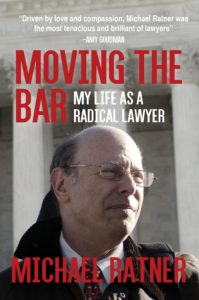
Moving The Bar: My Life As A Radical Lawyer
Michael Ratner’s memoir Moving The Bar: My Life As A Radical Lawyer will be available at OR Books. As listeners know, Michael Ratner was one of the most important civil rights attorneys in our era. He spent his life fighting on behalf of those who state and empire sought to crush, from the leaders of the prison uprising at Attica to Muslim prisoners held in Guantanamo, to Julian Assange.
Michael Ratner (1943–2016) worked for more than four decades at the Center for Constitutional Rights becoming first the Director of Litigation and then the President of what Alexander Cockburn called “a small band of tigerish people.” He was also the President of the National Lawyers Guild. Michae Ratner handled some of the most significant cases in American history. This book tells why and how he did it. His last case, which he worked on until he died, was representing truth-telling whistleblower and now political prisoner Julian Assange, the editor of WikiLeaks. Ratner “moved the bar” by organizing some 600 lawyers to successfully defend habeas corpus, that is, the ancient right of someone accused of a crime to have a lawyer and to be brought before a judge. Michael had a piece of paper taped on the wall next to his desk at the CCR. It read:
Four Key Principles Of Being A Radical Lawyer:
1. Do not refuse to take a case just because it is long odds of winning in court.
2. Use cases to publicize a radical critique of US policy and to promote revolutionary transformation.
3. Combine legal work with political advocacy.
4. Love people.
We hear interviews about Michael Ratner with Chris Hedges’s show On Contact, Attorneys Eleanor Stein, Richard Levy and David Cole.

————————–
CIA Sponsored Terror, Civil Liberties, Human Rights, Prison Industry, Surveillance, Truth to Power, War Resister
Podcast: Play in new window | Download
- Commentary By Attorney Jim Lafferty: Christian Nationalism
—-
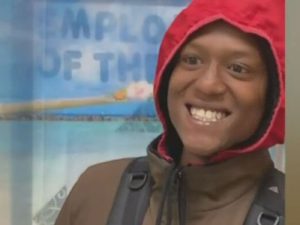

Activists Face Felony Charges In Action Denouncing Elijah McClain Murder
On September 17, 2020 at least six anti-racist activists were arrested in an action denouncing the Colorado police, notably for the murder of Elijah McClain. In the summer of 2019, three Aurora Colorado police officers put 23-year-old McClain in a chokehold and medics injected him with ketamine. The young violinist and massage therapist went into cardiac arrest, was pronounced brain dead, and died three days later.
The social justice activists now face a litany of felony charges, and possible decades in prison, on charges that include “kidnapping.” Four of those arrested — Russel Ruch, Lillian House, Joel Northam, and Eliza Lucero — are considered protest leaders and are members of the Party for Socialism and Liberation.
Police made a spectacle of the arrests, sending what many assert is a threatening message to other activists. Police followed Russel Ruch to Home Depot where they arrested him in the parking lot; five police cars surrounded Lillian House as she was driving; and a S.W.A.T team was dispatched to Joel Northam’s home. According to the 30-page arrest affidavits, the police used livestream footage, call transcripts, and social media posts to build a case against those arrested.
Guest – Lillian House, one of the four protest leaders. More information at Denverdefense.org
—-
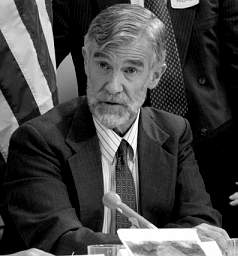
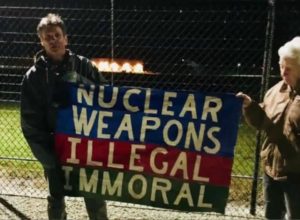
The Current Risk of Nuclear War And Treaty Restoration
When Donald Trump was president, the Democrats called him Putin‘s poodle. They falsely claimed that Russia influenced the election and caused Hillary Clinton to lose to Trump. Clinton famously said “all roads lead to Russia.“
But the truth of the matter was quite different. Despite Trump seemingly adoration of Vladimir Putin as a strong man, American policy towards Russia was not completely friendly. The question now is what will Biden do?
The risk of nuclear war with Russia has been a grave concern since the cold war of the 1950s. Under Presidents Donald Trump and Barack Obama American nuclear policies were such that the threat of war including accidental war was never reduced. With Biden as president will this change? Will there be a restoration of nuclear treaties and a de-escalation.
Guest – Ray McGovern former CIA intelligence analyst, Ray briefed President George H. W. Bush every morning on intelligence matters, particularly with respect to Russia. He is a founder of VIPS, Veteran Intelligence Professionals for Sanity and a contributor to the blog Common Dreams.

———————–
Civil Liberties, Criminalizing Dissent, Human Rights, Surveillance, War Resister
Podcast: Play in new window | Download
- GTMO Commentary By Lawyers Guild Show Host Jim Lafferty
—-

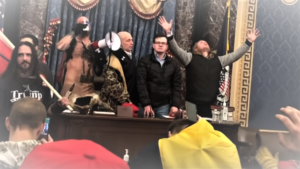
Brian Becker on Inauguration Protests, Security and Reform
Americans have protested incoming presidents throughout history, starting in the 19th century. Four years ago, thousands descended on the nation’s capital this to protest Donald Trump’s inauguration, and more than 200 were arrested. The day before President Woodrow Wilson took office in 1913, up to 8,000 women marched down Pennsylvania Avenue in what one historian says was likely the first large-scale inauguration protest. The suffragists, who’d gotten a parade permit, were pushed, spat upon, and beaten. Many women were hospitalized, and the treatment of the women led to the firing of the capital’s police chief.
In 1969, anti-war protesters threw burning miniature flags and stones at police during Richard Nixon’s inauguration. During Nixon’s 1973 inauguration, a ‘massive anti-war protest was staged at the Lincoln Memorial, with an estimated 100,000 people were present and participated in a “March against Death.” 80 Congressmen joined the demonstrations and boycotted the inaugural ceremonies.
The demonstrations at Bush’s inauguration in 2001 were the first major protests at a presidential inauguration since the protests against Nixon in 1969 and 1973. At least 20,000 people demonstrated in the capital and along the inaugural parade route in defiance of the Supreme Court ruling in Bush v. Gore. “Selected not elected” and “Hail to the thief” were some of the slogans on signs at the protest. Four years later, more than 1,000 demonstrators were at Bush’s inauguration, largely to protest the Iraq war, as the president was sworn in for his second term.
Two weeks before the Biden inauguration, Trump-loving lawbreakers ransacked the Capitol building. Combined with the COVID pandemic, last week’s inauguration was pared down, and a ring of law enforcement encircled the metropolis.
Guest – Brian Becker, director of the ANSWER Coalition and host of The Socialist Program podcast.
—-

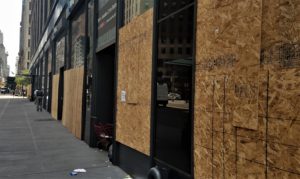
A Path Forward: Professor Jack Rasmus
The word “chaos“ best describes the current American situation. Public health, an economic disaster, institutional racism, and political turbulence were rampant as Trump vacated the White House. America leads the world in the number of COVID-19 cases. The number of deaths, which are now over 400,000, are mounting rapidly.
The economy is in terrible shape.. Perhaps 20 million people are unemployed. Small businesses are shuttered. Millions face eviction. Hunger is rampant, especially among children. What does the future hold? Are we really free of Trump and Trumpism? What will Biden do?
Centrist Democrats like Biden, since the remaking of the Democratic Party beginning with neo-liberal Clinton, have not vigorously defended the social gains secured in the 1930s with the Roosevelt New Deal. Will Biden defend these? Will he extend them?
Can he do this by governing from the center?What does his proposed $1.9 trillion rescue package consist of? Will Bidens proposals hold up in Congress? Is there more needed?
Guest – Dr. Jack Rasmus, he holds a PhD in political economy and teaches at Saint Mary’s College in California. Professor Rasmus has written numerous books and articles on economics and is the host of the weekly radio show “ Alternative Visions“ on the Progressive Radio Network.

————————————–
CIA Sponsored Terror, Civil Liberties, Human Rights, Iraq War, Military Tribunal, Political Prisoner, Prison Industry, Prosecution of the Bush Administration, Supreme Court, Surveillance, Targeting Muslims, Torture, Truth to Power
Podcast: Play in new window | Download
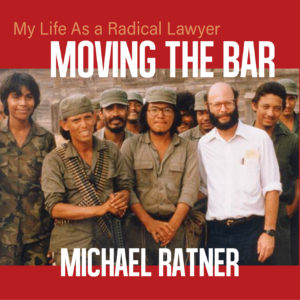

Hosts Heidi Boghosian and Michael Smith interviewed some of Michael Ratner’s closest friends and colleagues as part of a special broadcast highlighting Michael Ratner’s legal work and mentorship. The special also marked the upcoming release of Michael Ratner’s autobiography Moving The Bar: My Life As A Radical Lawyer published by OR Books. In this one hour taken from the two hour fundraiser broadcast, we hear from attorneys including Eleanor Stein, Richard Levy, Ray Brescia, David Cole and Baher Azmy.
—
Michael Ratner’s pathbreaking legal and political work is unmatched. He provided crucial support for the Cuban Revolution and won the seminal case in the Supreme Court guaranteeing the right of habeas corpus to Guantanamo detainees. Michael also challenged U.S. policy in Iraq, Haiti, Nicaragua, Guatemala, Puerto Rico and Israel-Palestine. This book is a testament to his unflagging efforts on behalf of the poor and oppressed around the world.
– Marjorie Cohn, Professor Emerita, Thomas Jefferson School of Law
Michael Ratner personified lawyering that brought both radical and human values into challenges to the use of governmental power to violate the essence of the Bill of Rights. From the torture of prisoners after 911 to the massive racial profiling by the New York Police Department, Michael’s voice and vision continue to resonate. This book provides a powerful testament to the spirit of this extraordinary man.
– Attorney Bill Goodman




















